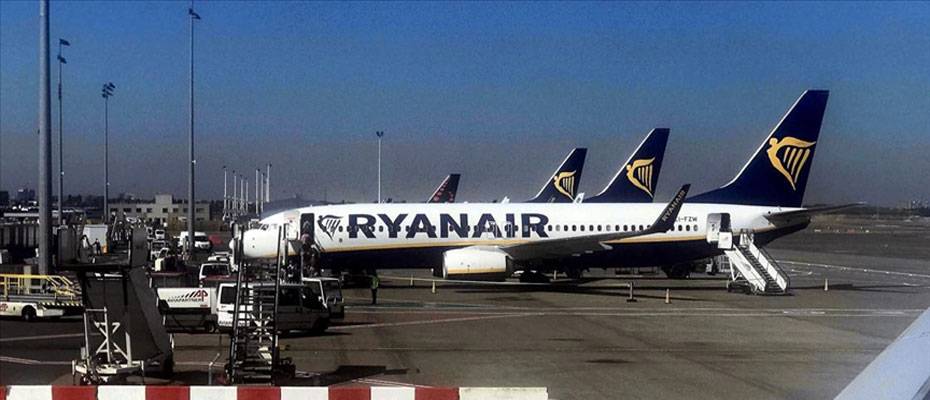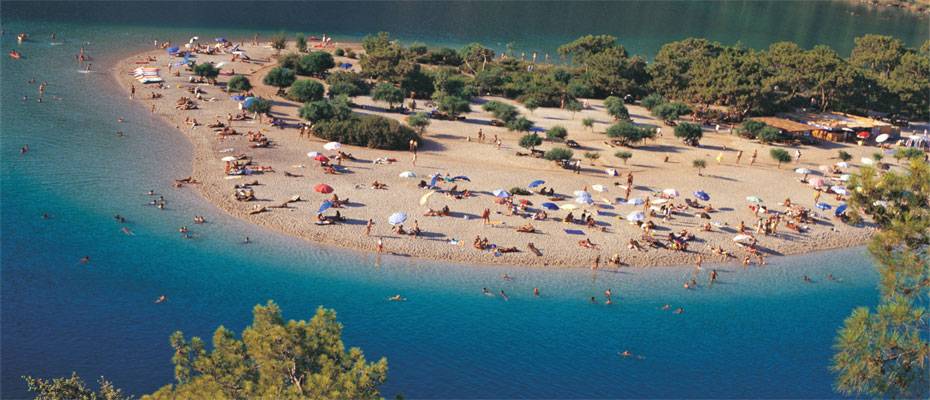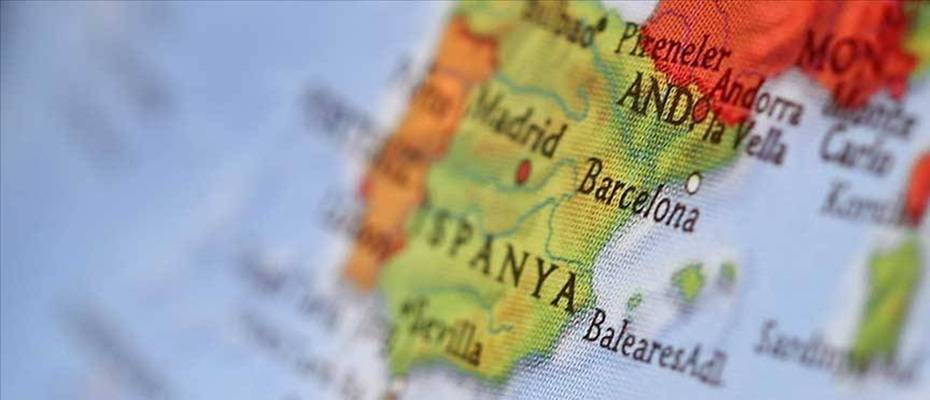Tourexpi
Torrential rains have
wreaked havoc in Italy over the past week, triggering floods that claimed more
than a dozen lives, displaced more than 20,000 people, and destroyed thousands
of homes and acres of cropland.
The devastation was
largely in the northern Emilia-Romagna region and parts of the neighboring
Marche, where some residents have lost everything.
The weather disaster
– the latest in a series of similar catastrophic incidents over recent years –
is a painful reminder of how Italy is particularly exposed to extreme
meteorological events, reviving concerns that it must do more to safeguard its
territory.
“This is the result
of the dangerous mix of Italy’s fragility and the increase in extreme weather
events, threatening its territory and its inhabitants,” said Paride Antolini,
president of the regional organization of geologists in Emilia-Romagna.
Almost 94% of Italy’s
municipalities are prone to floods, landslides, coastal erosion and other
natural disasters, according to a 2021 report by the Italian Institute for
Environmental Research and Protection.
More than 8 million
people are at risk of landslides or floods, in areas mostly in the north of the
country, but also in the southwestern Campania region, home to Italy’s
third-largest city Naples.
Accounting for
two-thirds of all landslides recorded in Europe, Italy is the most vulnerable
to such events on the continent, the country’s Court of Audit said in the same
year.
Last summer, an
unusual heat wave coupled with one of the worst droughts in decades caused an
avalanche in the Italian Alps, killing 11 people.
In September, around
a dozen more were killed by floods in Marche, while two months later, 12 people
died on the island of Ischia, near Naples, after heavy rain sparked a
landslide.
“Despite the many
regulatory, organizational and procedural interventions, the fight against and
prevention of hydrogeological instability increasingly represents a national
emergency and a real priority for the country,” the Court of Audit said in its
report.
What makes matters
worse is that Italy is very slow at spending the billions of euros allocated to
mitigate the degradation of its land and soil, often due to excessive red tape
and the lack of technical expertise among local administrations.
Italy’s extreme
weather challenge
The temperature of
the Mediterranean Sea is rising faster than that of the oceans, which is why
many scientists have identified the region as a climate change hotspot.
Since the
Mediterranean surrounds the Italian peninsula, the country is much more exposed
to extreme weather events, such as torrential rains, than other European
countries, said Stefano Liberti, a journalist and author of a book on the
effects of climate change on Italy.
The characteristics
of Italy’s soil, which is proportionally the most covered by buildings and
roads in Europe, make it also particularly vulnerable to these events, said
Liberti.
The Emilia-Romagna
disaster was caused when a quantity of rain comparable to a six-month average
poured down in the span of just a few days, according to several
meteorologists.
The region also faced
a prolonged and severe drought, making the soil less absorbent than usual and
contributing to the violent nature of the floods.
Residents and
authorities are now assessing the damage and trying to pick up the pieces after
what some scientists have branded Italy’s worst floods in a century.
Counting the cost
While cost estimates
are hard to make at this stage, Irene Priolo, vice president of the
Emilia-Romagna region, has placed the figure at around €5 billion to €6 billion
($5.4 billion to $6.5 billion).
The floods took a
particularly heavy toll on agriculture, devastating more than 5,000 producers
and livestock breeders, according to the Italian farmers’ association
Coldiretti.
Some 400 million
kilograms (over 400,000 tons) of wheat were lost, as were almost 15 million
fruit trees, a major loss for a region valued for its peaches, nectarines,
apricots, pears, and other fruits. In addition, thousands of the around 250,000
animals bred in the area drowned, Coldiretti said.
On Tuesday, the
Italian government took the first major step for the affected areas, earmarking
€2 billion in emergency funds.
Roughly €200 million
will go to farmers to compensate them for their losses on crops and help them
replace damaged machinery. Another €300 million will be for export-led
companies and €20 million for schools.
Almost €600 million
were set aside for salaries of workers who are temporarily without a job and
another €300 million for the self-employed forced to shut down their
businesses. Tax and utility bill payments will be suspended until August.
“As usual, we
Italians are very good at dealing with emergencies,” said Antolini, the
geologist.
“A bit less with
prevention.”
Image Credit: © AA
The most interesting news
Booking.com: Growing Awareness of Tourism’s Impact on Communities
Booking.com has released the 10th edition of its annual Sustainable Travel Research, highlighting the increasing awareness among travellers regarding the social and ecological impacts of tourism.
TUI Airways Launches Direct Flights from Newcastle to Agadir
TUI Airways has launched its inaugural direct flight from Newcastle International Airport to Agadir, Morocco, offering travellers in the North East a convenient new route to Morocco’s stunning Atlantic coast.
Condor Launches New Flights to Milan, Paris, and Prague
As of May 1, 2025, Condor has expanded its network of European destinations with the launch of new daily flights to Milan (MXP), Paris (CDG), and Prague (PRG).
European Travel on the Rise for US Travelers this Summer
Allianz Partners USA reports that summer travel to Europe by U.S. travelers is expected to increase by 10% in 2025, marking the fourth consecutive year of growth.
AlUla Expands Global Presence with Five New DMC Partnerships
AlUla has signed agreements with five new Destination Management Companies (DMCs), strengthening its global reach and enhancing curated travel experiences.
Ryanair Urges New German Transport Minister to Abolish Air Traffic Tax
Ryanair, Europe’s largest airline, has welcomed Patrick Schnieder as Germany’s new Federal Transport Minister and called on the government to prioritize the abolition of the air traffic tax.
Thailand Launches ‘Amazing Thailand Grand Tourism & Sports Year 2025’ Campaign
The Thai government has approved a comprehensive cooperation framework for the "Amazing Thailand Grand Tourism & Sports Year 2025" campaign, aiming to position Thailand as a premier global tourism and sports destination.
Allianz Partners Launches Cruise Travel Insurance for Norwegian Cruise Line
Allianz Partners Australia has introduced a new cruise-specific travel insurance product in collaboration with Norwegian Cruise Line (NCL).
Fly Delta App Gets a Major Upgrade for Summer Travel
Delta Air Lines has launched version 7.0 of its Fly Delta app, offering travelers enhanced features just in time for the busy summer season. The updated app provides real-time flight updates, personalized notifications, and improved self-service opti
Radisson Hotel Group Publishes 2024 Sustainability Report
Radisson Hotel Group has released its 2024 Sustainability Report, showcasing the company’s commitment to responsible business practices through transparent and accountable reporting.
Lufthansa shareholders approve all agenda items at the Annual General Meeting
Around 1,500 shareholders attended the Annual General Meeting online.
Türkiye Celebrated as Global Tourism Hub Bridging Asia and Europe
Türkiye has been praised as a leading global tourism destination, uniquely positioned at the crossroads of Asia and Europe.
International Tourism in Spain Sets New Record in Q1 2025: €23.5 Billion Spent
International tourists spent a record €23.5 billion in Spain during the first quarter of 2025, marking a 7.2% increase compared to the same period last year, according to data released by the Spanish National Statistics Institute (INE).
Condor and Emirates officially activate reciprocal codeshare agreement
Condor and Emirates have officially activated their reciprocal codeshare partnership ahead of the 2025 summer travel season.
Emirates expands footprint into Eastern China with launch of daily Dubai-Hangzhou flights
Emirates, the world’s largest international airline, is set to launch a daily non-stop service between Dubai and Hangzhou from 30 July*.
Hilton Announces NoMad’s Debut in Asia Pacific with First Hotel in Singapore
Hilton (NYSE: HLT) has announced its first NoMad hotel in Asia Pacific, set to open in Singapore in early 2027. In collaboration with UOL Group, a leading property and hospitality company in Singapore, this marks NoMad’s entry into the region's fas
Delta Tops J.D. Power’s Premium Economy Segment for Third Consecutive Year
For the third year running, Delta has claimed the top spot in the Premium Economy Passenger Satisfaction category of the J.D. Power 2025 North America Airline Satisfaction Study. The recognition highlights Delta’s commitment to exceptional service,
Turkey Welcomes 8,9 Million Tourists in Q1
2025 Culture Route Festival Promises World-Class Highlights.
Disney and Miral Announce Plans for New Disney Theme Park and Resort on Yas Island, Abu Dhabi
The Walt Disney Company and Miral, the leading creator of immersive destinations and experiences in Abu Dhabi, have announced a groundbreaking partnership to develop a landmark Disney theme park resort on Yas Island. T
ASTA Calls on US Department of Transportation to Reform Airline Refund and Disclosure Rules
The American Society of Travel Advisors (ASTA), representing over 190,000 travel professionals across the United States, has formally submitted comments to the U.S. Department of Transportation (DOT) regarding regulatory reform.
Marriott International Announces the Return of the Luxury Dining Series in 2025
Marriott International's acclaimed Luxury Dining Series is making a much-anticipated comeback in 2025, expanding from six to seven luxury properties across the Asia Pacific. Set to take place from July to September, the series will showcase a gastron



























